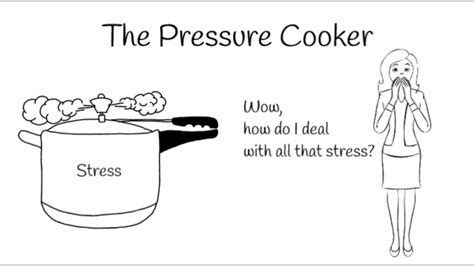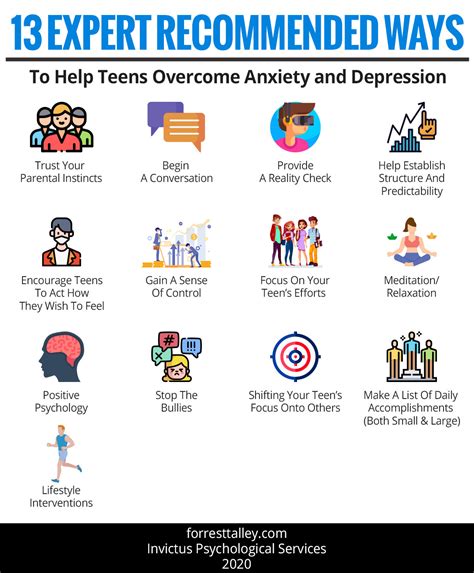
Teen anxiety and depression may be exacerbated by well-intentioned but ultimately harmful parenting behaviors, according to recent research and expert opinions. Over-involvement, excessive pressure to succeed academically, and a lack of autonomy granted to adolescents are contributing factors to the rising mental health crisis among young people.
The pressure parents exert on their teenagers, often driven by a desire to ensure their children’s success, can inadvertently fuel anxiety and depression. Experts warn that this pressure cooker environment, characterized by constant monitoring, high expectations, and limited independence, is detrimental to adolescent mental well-being.
The Pressure to Succeed: A Double-Edged Sword
The relentless pursuit of academic achievement, extracurricular excellence, and future career prospects can place immense stress on teenagers. While parents may believe they are acting in their child’s best interest, the constant pressure to perform can lead to feelings of inadequacy, burnout, and anxiety.
“We’re seeing a generation of kids who are so stressed and anxious about achievement,” explains Dr. Lisa Damour, a psychologist and author specializing in adolescent mental health. “They feel like they have to be perfect, and that’s just not sustainable.”
This pressure often manifests in the form of demanding schedules, intense competition, and a focus on outcomes rather than the learning process itself. Teenagers may feel compelled to take on excessive workloads, participate in numerous activities, and strive for perfect grades, all in an effort to meet their parents’ expectations.
However, this relentless pursuit of success can come at a significant cost. Studies have shown a strong correlation between academic pressure and increased rates of anxiety, depression, and suicidal ideation among adolescents.
The American Psychological Association defines pressure as “what we experience when we feel stretched, strained, or squeezed by demands and expectations,” including the expectation to perform well or the fear of not meeting important goals.
Over-Parenting and the Erosion of Autonomy
Another contributing factor to teen anxiety and depression is over-parenting, also known as helicopter parenting. This involves excessive involvement in a child’s life, often characterized by constant monitoring, problem-solving, and decision-making on their behalf.
While parents may believe they are protecting their children from failure or disappointment, over-parenting can actually hinder the development of essential life skills, such as problem-solving, decision-making, and resilience.
“When parents are constantly intervening and solving problems for their kids, they’re not allowing them to develop the skills they need to cope with challenges on their own,” says Dr. Wendy Mogel, a clinical psychologist and author of “The Blessing of a Skinned Knee.” “This can lead to feelings of helplessness and anxiety when faced with difficult situations.”
Furthermore, over-parenting can undermine a teenager’s sense of autonomy and independence. Adolescents need opportunities to make their own choices, take risks, and learn from their mistakes in order to develop a sense of self-efficacy and confidence.
When parents constantly micromanage their children’s lives, they send the message that they don’t trust them to make good decisions, which can lead to feelings of resentment, rebellion, and anxiety.
According to Suniya Luthar, a professor of psychology at Arizona State University who was quoted in the article, “When we manage every aspect of kids’ lives, they never learn how to manage life themselves. The children grow up anxious, brittle, entitled, and altogether miserable.”
The Role of Social Media
While parenting styles play a significant role, the pervasive influence of social media also contributes to the rise in teen anxiety and depression. The constant exposure to curated images of other people’s lives can lead to feelings of inadequacy, social comparison, and low self-esteem.
Teenagers often feel pressured to maintain a perfect online persona, which can be exhausting and anxiety-provoking. The fear of missing out (FOMO) is also a significant source of stress, as adolescents constantly compare their lives to those of their peers on social media.
Furthermore, social media can exacerbate existing mental health issues, such as anxiety and depression. Cyberbullying, online harassment, and exposure to harmful content can all have a detrimental impact on a teenager’s mental well-being.
Building Resilience: Fostering Independence and Self-Efficacy
To mitigate the negative effects of pressure and over-parenting, experts recommend fostering independence and self-efficacy in teenagers. This involves giving them opportunities to make their own choices, take risks, and learn from their mistakes.
Parents should also encourage their children to develop healthy coping mechanisms for dealing with stress, such as exercise, mindfulness, and spending time in nature. It’s important to create a supportive and non-judgmental environment where teenagers feel comfortable expressing their feelings and seeking help when needed.
“It’s crucial that parents send the message that it’s okay to not be perfect, and that failure is a part of learning,” says Dr. Damour. “We need to help kids develop a growth mindset, where they see challenges as opportunities for growth, rather than as threats to their self-worth.”
Encouraging open communication is also essential. Parents should strive to create a safe space where teenagers feel comfortable sharing their thoughts and feelings without fear of judgment or criticism.
Recognizing the Signs of Teen Anxiety and Depression
It is crucial for parents to be aware of the signs and symptoms of teen anxiety and depression. These may include:
- Persistent sadness or hopelessness
- Loss of interest in activities they once enjoyed
- Changes in appetite or sleep patterns
- Irritability or restlessness
- Difficulty concentrating
- Fatigue or loss of energy
- Feelings of worthlessness or guilt
- Thoughts of death or suicide
If you notice any of these signs in your teenager, it is important to seek professional help. A therapist or counselor can provide support and guidance to help your child cope with their challenges and develop healthy coping mechanisms.
Practical Steps for Parents
Here are some practical steps parents can take to reduce pressure and foster independence in their teenagers:
- Reduce academic pressure: Focus on effort and learning rather than grades. Encourage your child to pursue their interests and passions, even if they don’t lead to a specific career path.
- Allow for unstructured time: Teenagers need time to relax, unwind, and pursue their own interests. Avoid over-scheduling them with activities.
- Encourage independence: Give your teenager opportunities to make their own choices and solve their own problems. Avoid intervening unless it is absolutely necessary.
- Promote healthy coping mechanisms: Encourage your child to exercise, practice mindfulness, and spend time in nature.
- Limit screen time: Encourage your teenager to take breaks from social media and other electronic devices.
- Model healthy behavior: Show your teenager how to manage stress and prioritize self-care.
- Seek professional help: If you are concerned about your teenager’s mental health, don’t hesitate to seek professional help.
Long-Term Consequences
The long-term consequences of unchecked teen anxiety and depression can be significant. Untreated mental health issues can lead to academic difficulties, substance abuse, relationship problems, and an increased risk of suicide.
It is therefore essential for parents to take proactive steps to support their teenager’s mental well-being. By reducing pressure, fostering independence, and promoting healthy coping mechanisms, parents can help their children thrive and reach their full potential.
The Importance of Professional Support
While parental support is crucial, it’s important to recognize that some teenagers may require professional help to manage their anxiety and depression. Therapists, counselors, and psychiatrists can provide evidence-based treatments, such as cognitive behavioral therapy (CBT) and medication, to help teenagers cope with their mental health challenges.
Cognitive behavioral therapy (CBT) is a type of therapy that helps individuals identify and change negative thought patterns and behaviors that contribute to anxiety and depression. Medication, such as antidepressants, can also be effective in treating these conditions.
Shifting the Cultural Narrative
Addressing the rise in teen anxiety and depression requires a shift in the cultural narrative. We need to move away from a culture that prioritizes achievement and perfectionism and towards one that values well-being, resilience, and self-compassion.
Schools, communities, and families all have a role to play in creating a more supportive and nurturing environment for teenagers. By working together, we can help young people thrive and reach their full potential.
The Bigger Picture: Societal Factors
While parenting plays a significant role, it’s also crucial to acknowledge the broader societal factors contributing to the rise in teen anxiety and depression. These include:
- Economic inequality: The widening gap between the rich and the poor can create stress and anxiety for families struggling to make ends meet.
- Social injustice: Discrimination and prejudice based on race, ethnicity, gender, sexual orientation, and other factors can have a detrimental impact on mental health.
- Climate change: The looming threat of climate change can create anxiety and despair, particularly among young people who will inherit a planet facing unprecedented environmental challenges.
- Political polarization: The increasing polarization of political discourse can create tension and division, leading to feelings of isolation and hopelessness.
Addressing these societal factors is essential for creating a more equitable and just society where all young people have the opportunity to thrive.
The Need for Systemic Change
Ultimately, addressing the rise in teen anxiety and depression requires systemic change. This includes:
- Investing in mental health services: Increasing access to affordable and high-quality mental health care is essential for ensuring that all young people can get the help they need.
- Promoting mental health awareness: Raising awareness about mental health issues can help reduce stigma and encourage people to seek help.
- Supporting schools and communities: Providing schools and communities with the resources they need to support the mental health of young people is crucial.
- Advocating for policies that promote well-being: Supporting policies that address economic inequality, social injustice, and climate change can help create a more equitable and just society where all young people have the opportunity to thrive.
By working together, we can create a society that prioritizes the well-being of its young people and supports them in reaching their full potential. The current trajectory, if left unaddressed, risks creating a generation burdened by chronic anxiety and depression, hindering their ability to contribute meaningfully to society and experience fulfilling lives. The collective effort of parents, educators, policymakers, and the broader community is imperative to reverse this trend. The future of our society depends on the mental and emotional well-being of its youth.
The impact of the COVID-19 Pandemic
It is also important to acknowledge the impact of the COVID-19 pandemic on teen mental health. The pandemic has disrupted routines, isolated young people from their peers, and created economic uncertainty for families. This has led to a significant increase in anxiety and depression among teenagers.
Studies have shown that the pandemic has had a disproportionate impact on the mental health of marginalized youth, including those from low-income families, racial and ethnic minorities, and LGBTQ+ individuals.
Addressing the mental health needs of teenagers in the wake of the pandemic will require a sustained effort from parents, educators, mental health professionals, and policymakers.
FAQ Section
Q1: What are the main parenting behaviors that contribute to teen anxiety and depression?
A1: According to experts and research, the main parenting behaviors that can contribute to teen anxiety and depression include over-parenting (helicopter parenting), excessive pressure to succeed academically and in extracurricular activities, and a lack of autonomy granted to adolescents. These behaviors can lead to feelings of inadequacy, burnout, helplessness, and a diminished sense of self-efficacy.
Q2: How does social media impact teen mental health?
A2: Social media can have a significant impact on teen mental health by fostering feelings of inadequacy, social comparison, and low self-esteem due to curated images of others’ lives. The fear of missing out (FOMO), cyberbullying, online harassment, and exposure to harmful content can also exacerbate existing mental health issues like anxiety and depression. Maintaining a perfect online persona can be exhausting and anxiety-provoking.
Q3: What are some practical steps parents can take to reduce pressure and foster independence in their teenagers?
A3: Practical steps include reducing academic pressure by focusing on effort rather than grades, allowing for unstructured time, encouraging independence by allowing teens to make their own choices and solve their own problems, promoting healthy coping mechanisms (exercise, mindfulness, nature), limiting screen time, modeling healthy behavior, and seeking professional help when needed.
Q4: What are some signs that a teenager might be struggling with anxiety or depression?
A4: Signs to watch out for include persistent sadness or hopelessness, loss of interest in activities once enjoyed, changes in appetite or sleep patterns, irritability or restlessness, difficulty concentrating, fatigue or loss of energy, feelings of worthlessness or guilt, and thoughts of death or suicide. If these signs are observed, seeking professional help is crucial.
Q5: What role do societal factors play in the rise of teen anxiety and depression, and what systemic changes are needed?
A5: Societal factors such as economic inequality, social injustice, climate change, and political polarization contribute to teen anxiety and depression. Systemic changes needed include investing in mental health services, promoting mental health awareness, supporting schools and communities, and advocating for policies that promote well-being, address inequality, and create a more equitable society where all young people can thrive. Furthermore, parents and educators should be aware of and try to mitigate the disruptions and anxieties caused by events like the COVID-19 pandemic.









